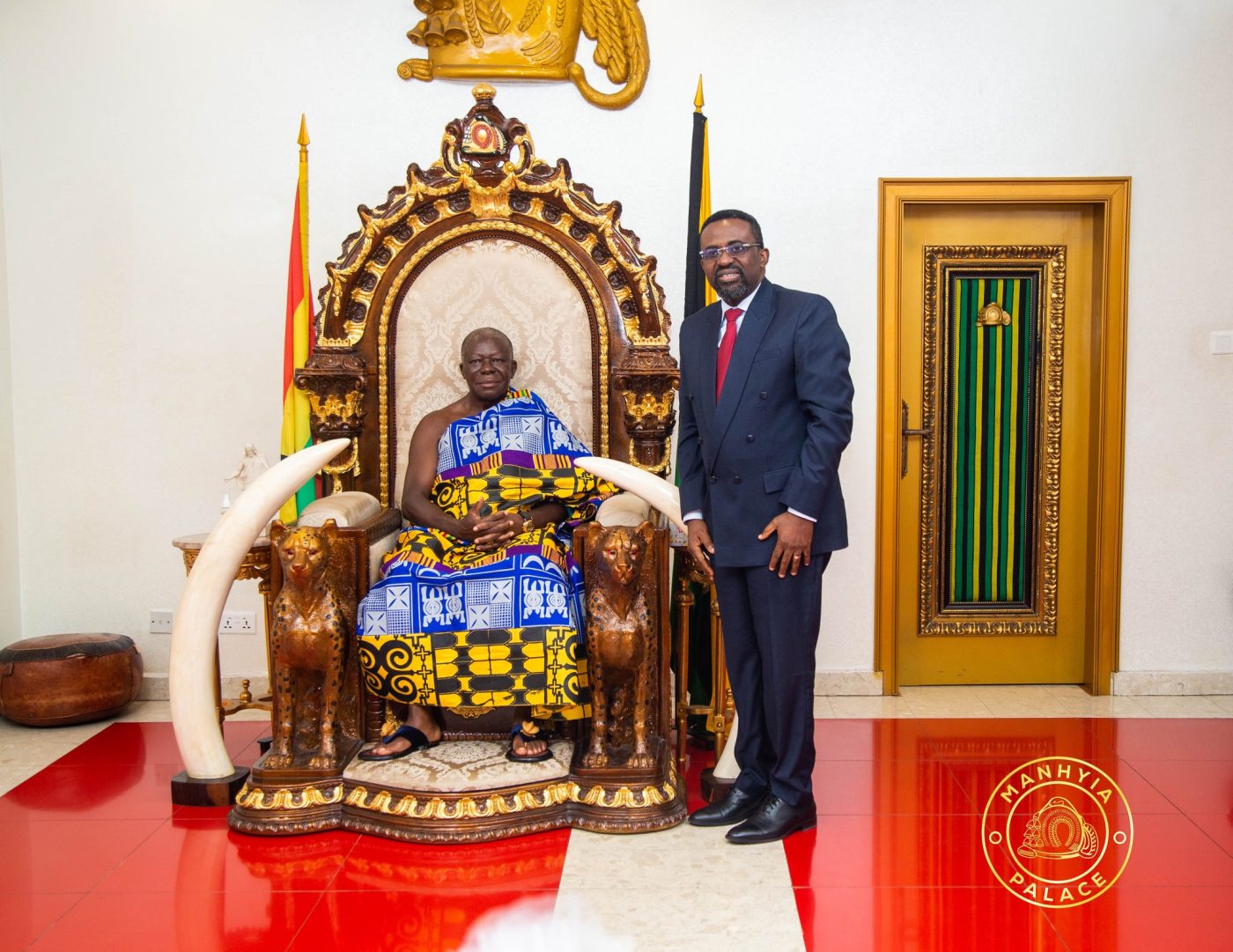How Can Recent Cedi Gains Be Sustained?- Asantehene Asks BoG Governor

The Monarch of the Asante Kingdom, Otumfuo Osei Tutu II, has initiated a candid conversation about finding practical means to sustain the recent gains in the cedi.
As of May 2025, the cedi has strengthened by 24.1% against the U.S. dollar, 16.2% against the British pound, and 14.1% against the euro.
During an engagement with the Governor of the Bank of Ghana at the Manhyia Palace on July 23, 2025, Otumfuo commended the collaboration between the Central Bank and the Finance Minister for the recent strengthening of the local currency.
His Majesty affirmed the need to maintain the positivity.
“You have used gold to supplement the dollar and now we see stability. But what everybody is asking is: Can the gains be sustained? How can the gains be sustained?”
Industrialisation
Otumfuo also made a case for businesses to gain extensive support from financial institutions to enhance industrialisation.
His Majesty indicated that the Central Bank needed to put adequate measures in place to strengthen governments to assist the government’s advocacy for industrialisation.
“Banks tend to invest customers’ deposits into treasury bills. That does not facilitate national development. The business and agricultural sectors need long-term loans from these banks.”
That said, Otumfuo also drew into the conversation the capacity of financial institutions to offer this kind of assistance.
“Do they have the strength to engage in that. We were told banks have been recapitalised. How do we benefit from that as a country?”
Bondholders Confidence
The King also highlighted issues about bonds that would be maturing next year and the accompanying required payments to domestic bondholders.
“The coffers must be built to handle that so we don’t disappoint Ghanaians.”
Payment of Contractors
Another topic of concern to the Asantehene was the payment of Contractors.
His Majesty urged the Bank to streamline the payment mode to avoid inflation and other challenges.
“There is a list of bills pending before the Finance Minister. Most often when payments are made, concerns are raised about the circulation of much currency in the market and when we fail to pay, it has its own challenges as well. Find a way to deal with that too.”
The King further affirmed his confidence in the Governor and challenged him to meet expectations of the Ghanaian public.
The Governor was accompanied to the Manhyia Palace by Dr. Zakari Mumuni, the First Deputy Governor, Mrs. Matilda Asante-Asiedu, the Second Deputy Governor, as well as members of the Board of Directors.
The visit was used to officially inform the Asantehene about his appointment, seek his blessings and brief him about the current state of the economy.
Asantehene’s Counsel
In his remarks, he indicated that the Counsel of the King would be indispensable in undertaking the mandate of the Bank.
According to him, the inflationary and fiscal situation of the country was in a dire state when he took over the reins of the central bank five months ago.
The Monetary Policy Committee, he said, continues to fix the damage in the economy.
“We are a new administration. We came in barely five months ago and we are trying to fix things. Going forward, we need advice. We need wisdom. Where else can we get this if not come to Nana.”
Fiscal and Inflationary Outlook
Briefing the King about the current state of the country’s fiscal, he said his administration took over at a time when inflation was quite high and was exacerbated by an unstable cedi.
“Immediately we got to work. We have the Monetary Policy Committee. We got into serious discussions. We implemented a number of reformations. At the time we were under an IMF programme. It’s an ongoing programme we met. That programme almost failed before we came but we have managed to sustain the program. Only last month we passed the fourth review. That shows that we are making progress. Our sovereign rating has also been upgraded. All that shows we are making progress.”
Cedi Concern
One major challenge to the stabilisation of the cedi to the dollar, he said, was Ghanaians’ apparent preference for the latter.
From his observation, Ghanaians prefer the dollar to the cedi, an action, he says, derails efforts in reining in the currency against major currencies.
“On the cedi, we have been preaching to Ghanaians that the cedi is the only legal tender we have, but it’s as though Ghanaians prefer to use the dollar. While we implement measures to make sure that the cedi is stable, we expect Ghanaians to price in the cedi,” he said.
He therefore pleaded with the Asantehene to assist in the advocacy.
“It’s all that we have. We will ask for help from Nana to also preach that message to Ghanaians. If you go to South Africa, it’s the Rand they use, if you go to Kenya, it is their Shilling, but it appears that in Ghana, we don’t like the Cedi. We will do our part, but we will plead that as we improve the economy, Ghanaians join us.”



